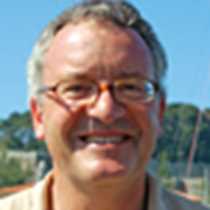At Sea / Canary Islands to Morocco
Our final day of the voyage sees us return to the African continental mainland as we make our way from the Canary Islands to Agadir in Morocco. In so doing we are following, in reverse, the route of the first inhabitants of the Canary Islands whom Mediterranean traders and explorers, when they arrived in the archipelago, knew as the Guanche, a name that derives from their words for people of the white mountain, the latter being the snow-capped volcanic peak of Mt Teide on Tenerife. The European name for the archipelago comes not from the little yellow bird but from a native breed of mastiff dog that Columbus took with him to the Caribbean and used to control the Arawak people. That Guanche precedence to this southerly outpost of the European Union is a potentially controversial issue was demonstrated a few years back when the director of the islands’ regional museum service was forced to resign after mounting and exhibition of the African origins of the islands’ population. Archeological and linguistic show the Guanche to be close relatives of the Berber people of north Africa. How they arrived in the Canary Islands remains a mystery, as by the time of European contact they appear to have had no tradition of seafaring.
Our sea day passed calmly in fine conditions. A presentation on Moroccan history as preparation for Marrakech, good sightings of loggerhead turtle and both Atlantic spotted and common dolphins and a surprise afternoon spread of tapas on the aft-deck before Captain’s Farewell Dinner.
What have we learned on this Epic Africa voyage? Amongst so much else, the sheer size and kaleidoscopic variety of the continent has been inescapable. One might have thought that a five-week voyage would provide an in-depth experience of the continent. In some important senses it has, giving us a heightened awareness that other peoples are not, as our Global Perspectives guest speaker, Wade Davis, so memorably put it at the start of the voyage, “failed attempts to be us.” On the other hand there was inevitably a touch of the “if it’s Tuesday it must be Belgium” about the voyage as we did blanket stitch from one country to another along the entire western coast of a continent into which the United States and Europe could fit comfortably with plenty of room left over. At the end of the voyage we are humbled by richness and variety of the cultures we have encountered on the western edge of a vast continent where we now know with certainty that all humanity had its origins.




